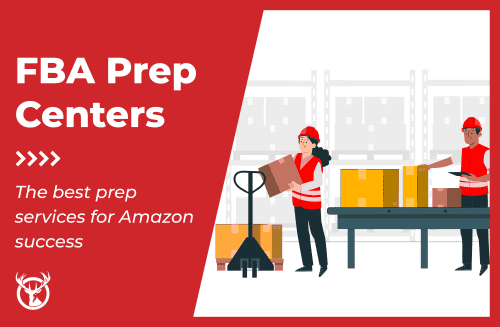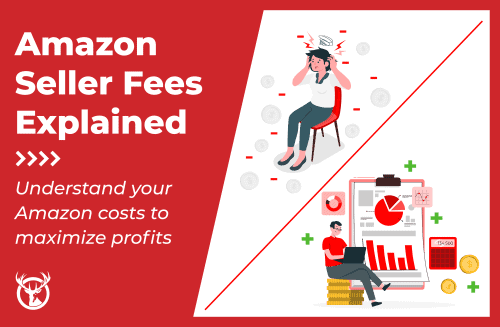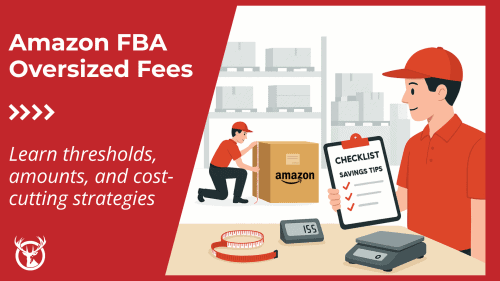Fulfillment by Amazon (FBA) lets sellers in the Amazon marketplace take advantage of Amazon’s massive logistics operation for eCommerce fulfillment, introducing both risks and benefits that create uncertainty when companies ask, “is Amazon fulfillment worth it?” FBA items are eligible for Amazon Prime shipping, and Amazon handles your angry customers (whom Amazon considers its customers, not yours).
Amazon has dozens of warehouses all over the country, and more around the world, so your products may be in your customers’ hands quickly. However, there are downsides to using FBA that every Amazon seller should know.
The answer to the question, “Is Amazon fulfillment worth it?” is different for each online store.
Note: This post is the second part of a two-part series on Amazon fulfillment. Part One: Is Amazon FBA Right for Your Business? We updated the series in August 2022 to reflect current Amazon policies.
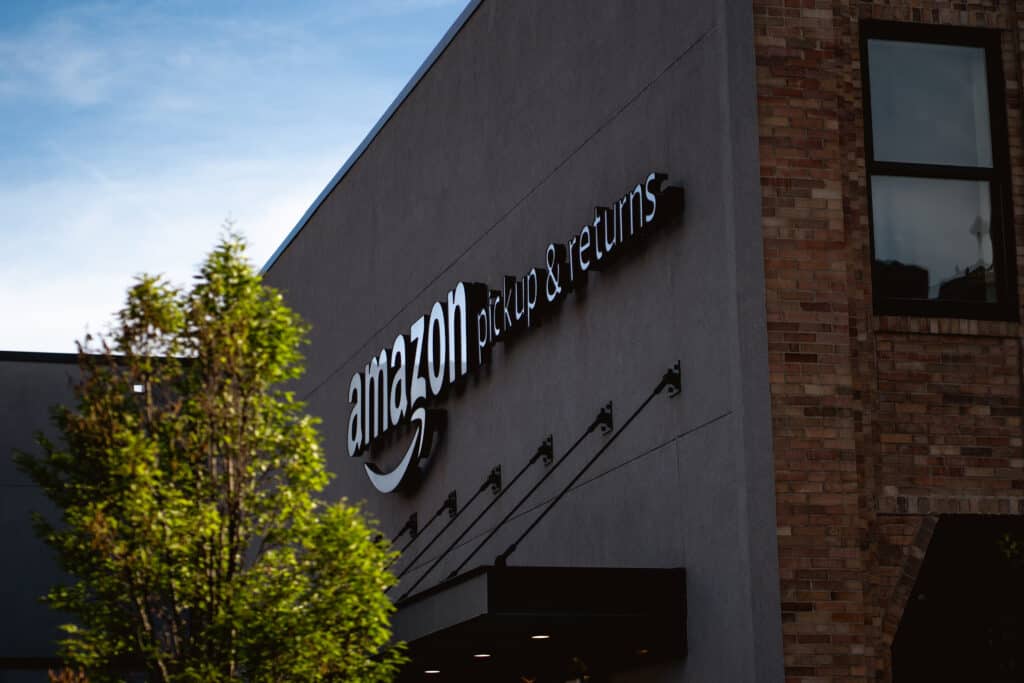
Is Amazon fulfillment worth it?
Amazon FBA allows you to focus primarily on sales and marketing for your online store while Amazon ships your orders. When you sign up for Amazon fulfillment, the company also takes care of returns and customer service. But is Amazon fulfillment worth it?
Amazon FBA has some terrific features. You can use the multichannel fulfillment option to ship orders placed on other platforms. You also benefit from Amazon’s extensive logistics network, and your products can qualify for Prime shipping.
But the downsides of FBA mean that Amazon fulfillment isn’t worth it for many sellers. Here are seven pitfalls to consider as you decide for your company: Is Amazon fulfillment worth it or not?
Pitfall 1: Amazon FBA inventory chaos
The inventory on the shelves and logged into the system is ready to pick to fill your orders. But merchandise that sits on the receiving dock or gets lost in the warehouse is a sunk cost that you aren’t profiting from. And mishandled inventory is one of the most reported Amazon third-party seller problems.
Some sellers have complained of FBA receiving delays that can stretch from days to weeks as they wait for their inventory to get logged into the Amazon fulfillment warehouse system. That can cause items to be out of stock, even if your inventory management is impeccable. And that can lead to a drop in your seller ratings or even canceled orders.
In addition, inventory that sits on a pallet on a loading dock ties up your capital without bringing in money. That’s something you want to minimize in your eCommerce business.

Your product can also get lost in the Amazon supply chain. When this happens, you must file a claim, and Amazon will usually reimburse you for the loss. But, once again, you aren’t generating sales from that product. To add insult to injury, Amazon often bases reimbursement amount on its valuation of your merchandise instead of what you paid for it.
Sellers also report extra inventory showing up after they ship to an FBA warehouse. It can take time and a frustrating back and forth with customer service to ensure the correct amounts of your product are recorded in the Amazon fulfillment system.
Amazon runs an enormous fulfillment and logistics operation. To do that, it has efficient systems in place. However, that efficiency’s goal is to improve Amazon’s bottom line, not yours. And, when there’s a glitch in those systems, it’s often the little guy who gets squeezed.
Pandemic leads more sellers to wonder if Amazon fulfillment is worth it
Amazon’s usual level of inventory mismanagement is minor compared to the disruptions Amazon caused for FBA sellers in its response to the coronavirus pandemic. When people around the globe went into self-quarantine to slow the virus, demand for online shopping soared, and Amazon scrambled to keep up.
Amazon told FBA merchants it would sell the remaining product in its warehouses.
However, it stopped accepting restocks of many other products due to the demand for household goods and cleaners. Amazon decided that unilaterally.
The Amazon fulfillment network hasn’t experienced a disruption of that magnitude since early in the pandemic. But FBA holiday inventory limits continue to strangle sellers’ ability to take advantage of peak sales (see pitfall #6 for more on this).
Pitfall 2: Amazon vs. your brand
Like most entrepreneurs, you probably want control over every aspect of your business and product lineup. That way, you can make sure everything runs properly. If you decide Amazon fulfillment is worth it for your business, you have no choice but to give up some of that control.
The shipping box is the clearest instance where Amazon places its stamp on your business. Amazon sends all the packages it fulfills in boxes with the Amazon logo. You can’t ship in a box with your brand logo or even an unmarked box, and you don’t have the option to include a personal note or other marketing inserts.
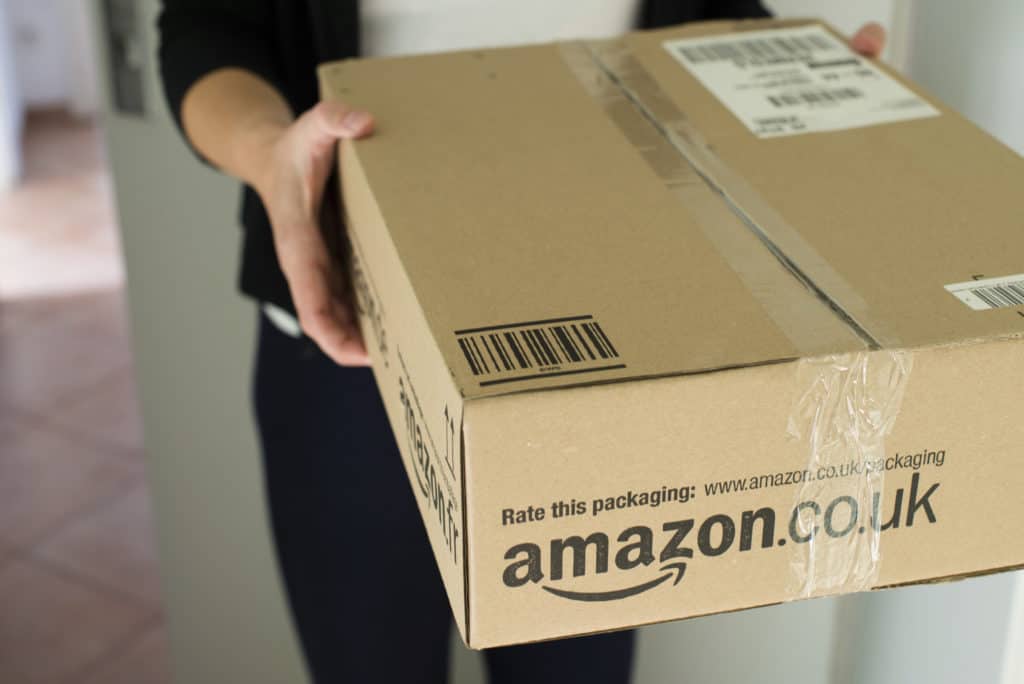
While Amazon FBA does offer multi-channel fulfillment, it sends orders from your website and other platforms using Amazon boxes. Your orders go out under the Amazon brand, not yours.
If establishing a solid brand is important to your eCommerce business, you should consider alternatives to Fulfillment by Amazon.
Pitfall 3: Missing that personal touch
Your 3PL warehouse can do much more than store inventory and pick, pack, and ship orders. At Red Stag Fulfillment, we can add inserts and personalized marketing materials to your customers’ orders, help you source uniquely branded boxes, and even add tissue paper with your company’s logo. We can also kit your inventory to increase your selling potential (and disassemble kits if you need individual SKUs). If any problems arise, we work hard to solve them for you.

An independent 3PL like Red Stag Fulfillment puts the needs of its clients first because you are our business. Unlike Amazon, we don’t sell products, and we don’t compete with you. Is Amazon fulfillment worth it if you have to sacrifice special services and individual attention that could help your online store grow and scale?
Pitfall 4: Customer service fails for Amazon FBA sellers
The test of any vendor is not when things go smoothly but how well they manage glitches that inevitably occur. According to Amazon seller forums, numerous Reddit forums, and countless other sites, Amazon FBA customer service can sometimes be slow, confusing, and downright unhelpful.
Sellers report spending hours on the phone and exchanging multiple emails with customer service without getting a resolution to their issue. Problems can sometimes take weeks to resolve.

Of course, Amazon FBA does handle customer service when your customers have an issue, and Amazon works hard to ensure that consumers are happy. No one likes talking to an angry customer, so outsourcing your customer service may take a heavy load off you. You should ask yourself whether Amazon fulfillment is worth it if you must spend extra time on your fulfillment issues.
Pitfall 5: Free shipping and Amazon fulfillment
The products shipped by Amazon fulfillment are generally eligible for free Amazon Prime shipping. While this can be a plus in attracting more Prime customers and winning you more sales, you still have to pay the shipping costs.
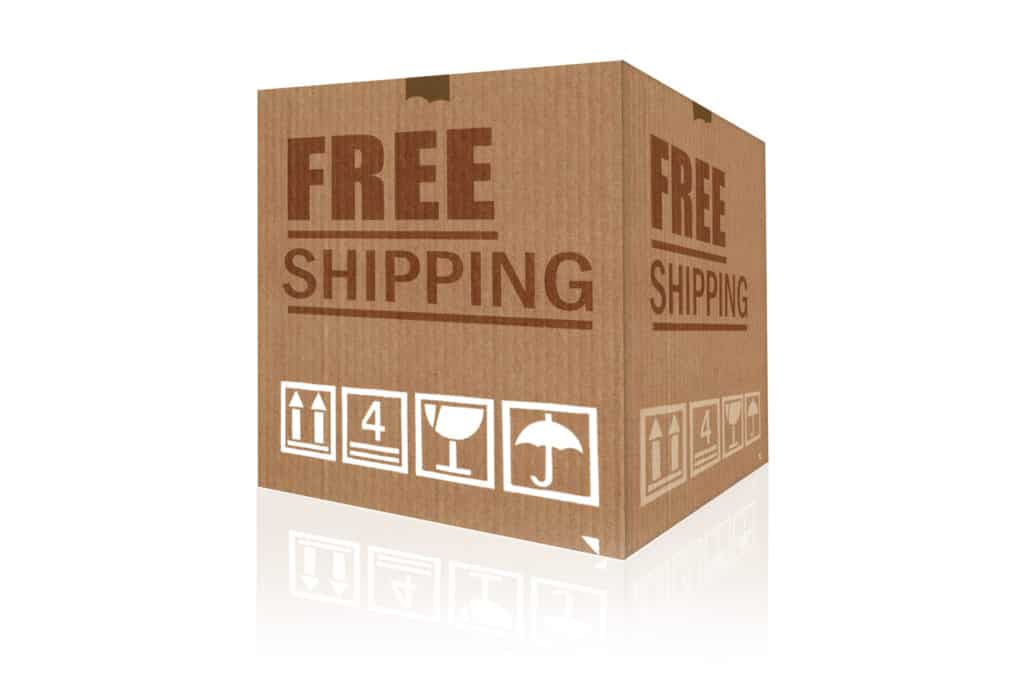
Amazon chooses which products get free shipping, not you. Whatever your profit on an item, you’ll have to absorb the shipping costs for Amazon Prime orders. Prime could turn a sale into a loss for items with slim margins or orders with high shipping costs.
You’ll need to calculate not only the fees for the service but also whether you can absorb unreimbursed Prime shipping costs, in addition to Amazon FBA fees. In other words, is Amazon fulfillment worth it if you have to pay for shipping?
Pitfall 6: Inventory limits and turnover requirements
Amazon fulfillment seems designed for small sellers that aren’t set up to store and ship orders quickly, but FBA increasingly caters only to larger businesses. Amazon even suggests that sellers use the Fulfillment by Merchant option instead of FBA if they have little inventory or low turnover.
In some cases, Amazon forced FBA sellers that didn’t meet Amazon fulfillment metrics to remove their inventory from FBA warehouses on short notice, leaving them scrambling to find a new 3PL.
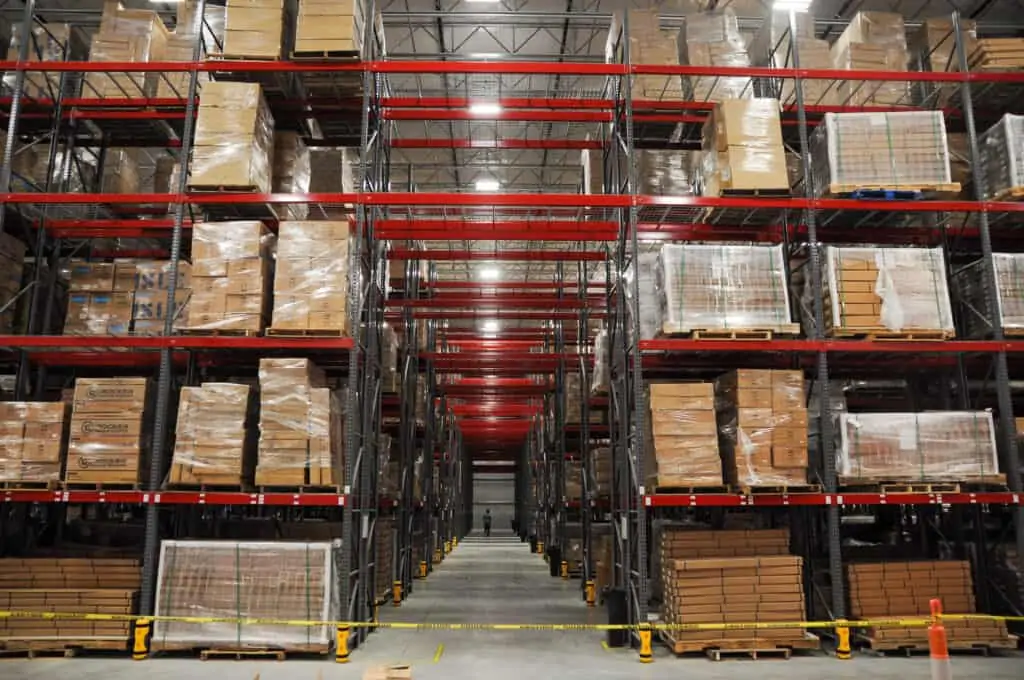
And even Amazon Marketplace sellers who remain in FBA’s good graces have found their holiday sales limited by Amazon warehouse policies. During the peak holiday season, when warehouse space is at a premium, FBA increases storage fees and limits the amount of stock that sellers can place in Amazon warehouses. Combine that with the time it often takes to get new shipments ready to pick, and Amazon sellers may find that FBA limits their holiday sales.
Pitfall 7: Amazon’s fulfillment inventory swap
One of the most troubling problems sellers have encountered with Amazon is when a warehouse swaps one seller’s inventory for another.
To explain it, let’s look at a hypothetical seller, Bob, who sells coffee makers. Bob’s most popular item is a Rise ‘N’ Shine brand coffee maker. Amazon FBA stores Bob’s coffee makers in warehouses around the country but not on the West Coast.
When Zelda in Eugene, Oregon, orders a Rise ‘N’ Shine coffee maker from Bob, there isn’t one warehoused near her. However, Amazon has some Rise ‘N’ Shine coffee makers with the same SKU in a fulfillment center in Los Angeles. The products belong to another Amazon FBA seller. In the name of efficiency, Amazon ships a Rise ‘N’ Shine coffee maker from its California fulfillment center to Zelda in Eugene and gives Bob in Florida credit for the sale.

Pros and cons of comingled inventory
There are some benefits to this flexibility to swap products with other merchants. For example, it saves on shipping time and costs, which is good for Bob and his customers.
However, the product in the California warehouse could be a knockoff sold under the same SKU rather than a genuine Rise ‘N’ Shine. When Zelda opens the box and finds she’s gotten a lower-quality item, she will give Bob a negative review. Bob’s business will take a hit for deceptive marketing, even though he only sells name-brand products that he sources from reputable distributors.
That can damage Bob’s seller reputation and even get him banned from Amazon Marketplace. Mistakes like this have happened to more than one seller.
Personal attention is hard to come by in an ecosystem the size of Amazon FBA. The flip side of the company’s giant logistics machine is that its mistakes can ruin your company’s reputation. Is Amazon fulfillment worth it if it could destroy your business?
Note: Seller accounts typically use manufacturer barcodes to track inventory. You can manually change this to a new barcode you create using your account. This effort creates more work for you but could prevent commingling because Amazon uses manufacturer barcodes for commingled fulfillment.
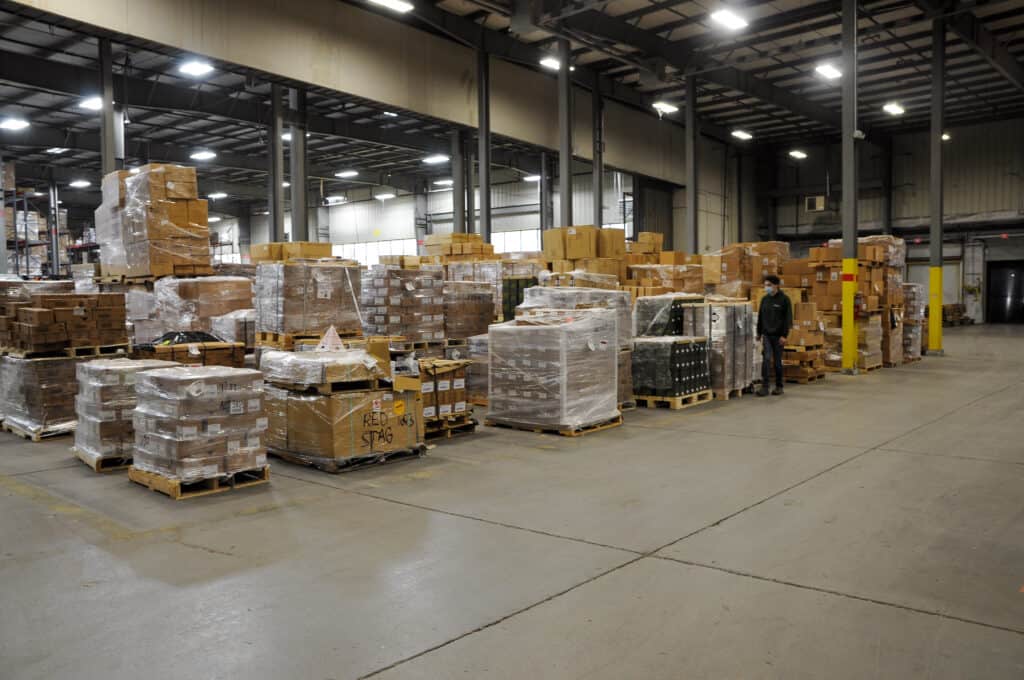
Is Amazon fulfillment worth it today?
There’s no question that Fulfillment by Amazon can help your products win the buy box. Amazon FBA is still an excellent option for many online businesses. However, you should consider the cost of long-term storage fees, problems with customer support, and the chances that your products could be mishandled at the fulfillment center. Fortunately, if you decide that Amazon fulfillment isn’t worth it, you have many terrific alternatives to FBA.
An independent eCommerce fulfillment center is more likely to process your orders in ways that meet your higher standards. You will be a valued customer at your 3PL rather than just another number on Amazon’s balance sheet.
Red Stag Fulfillment processes orders quickly, with a high level of accuracy that exceeds Amazon’s standards for fulfillment. At Red Stag, we also handle returns and treat your products as if they were our own during every step of the process. We want to be your partner for successful selling on Amazon and beyond. Give us a call to find out how we can help.

Nothing in this article is meant to imply a legal relationship between Red Stag Fulfillment, LLC and and any Amazon. Red Stag Fulfillment, LLC does not own any other company’s trademarks referenced or included in this article. Information gathered for this article came from a mix of publicly available news and websites, websites of the companies mentioned, and direct communication with named companies.








